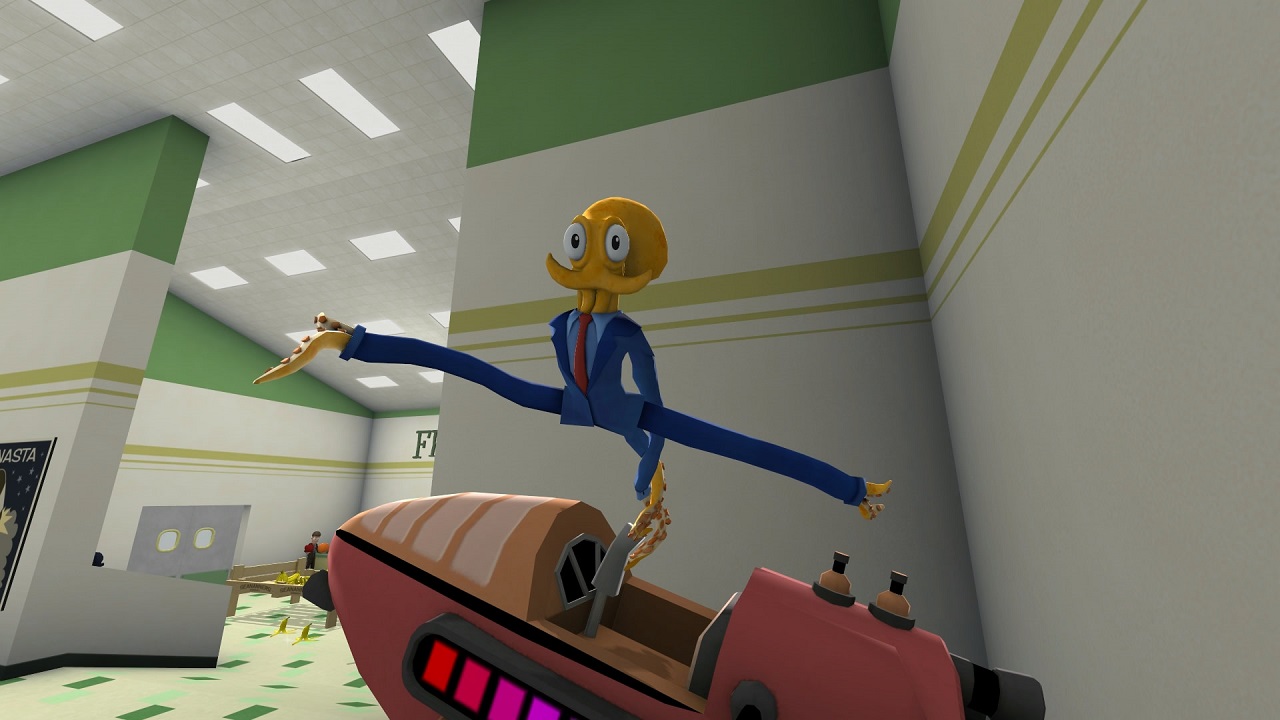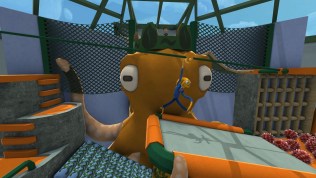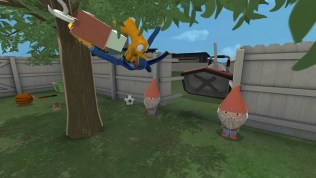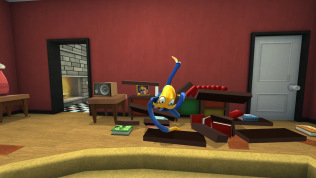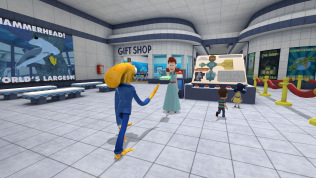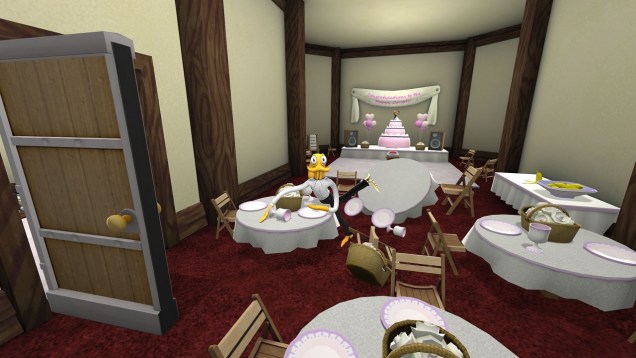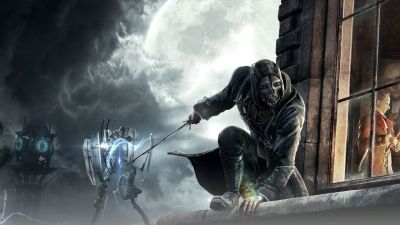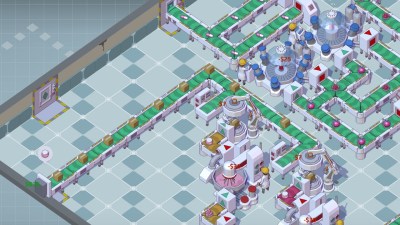Octodad: Dadliest Catch is fundamentally and intentionally broken. It doesn’t have many unexpected glitches or progress-ending bugs, but its most basic element - the control scheme - is centered around the exceedingly awkward movements of an animal out of its element. Because in Octodad, you assume the role of an octopus attempting to pass as a human.
The logistics don’t matter. You have a wife and children, and go about your life in a sort-of typical fashion. You have a routine, but every single part of that routine is hindered by the fact that you are, once again, an octopus. Every single aspect of the game is colored by the fact that you, an octopus, have tentacles instead of arms and legs. Your classy suit may fool your family, but you have to get through life without breaking too many things or arousing too much suspicion.
And it’s infuriating. Though not at first.
Early on, Octodad: Dadliest Catch is mildly annoying while also being hilarious. It’s the kind of thing perfectly tailored for Let’s Plays, even more so than other animal-based physics nightmares like Goat Simulator. But it doesn’t stay hilarious for the full four or five hours it takes to complete the campaign. It’s an inverse relationship: As the challenges become increasingly difficult, annoyance goes up and hilarity goes down. By the time you reach the game’s final set piece, it becomes truly maddening. (At which point I rescind my point about unexpected glitches; certain movements were only successful some of the time.)
The form of Octodad is excellent. The visuals are simple but crisp and cartoonish, and the dialogue and situations are consistently funny. But Octodad is function over form (as any video game should be, let’s be clear), and the function (or lack thereof) also kills it. To play Octodad, you must individually control two bunches of tentacles that serve as “legs” as well as one tentacle that acts as an “arm.” Even the simple act of walking becomes a nightmare of almost QWOP-like proportions. You do sort of get the hang of that most basic function over time, but simply getting from point A to point B never gets easy, just easier. But some things never get easier. They just get less amusing.
This is, at least in part, due to the fact that the Octodad himself is essentially the same from start to finish. His basic capabilities are the same in that first scene as they are in the last one, so if you don’t like him from the start, there’s no reprieve. You get more comfortable in his skin, but you never master the art of the octopus.
But Octodad is a celebration of something I absolutely hate in game design. It’s kind of like an old-school adventure game of sorts, in that it’s a series of levels with a variety of “puzzles” to be solved. There’s nothing particularly puzzling about the challenges themselves, with maybe a couple of exceptions, but they’re nonetheless challenging because the controls are challenging.
When I’m playing a game with puzzles, as soon as I figure out how to solve the puzzle, I’m immediately bored. “Oh yeah, I jump to that, grab that, put it on that, and then follow the elevator. Done.” And assuming that’s a simple process, I’m happy. I solved the puzzle! I’m a genius! Now let’s get to the next one.
But no. Not in Octodad: Dadliest Catch. Figuring out the puzzle is the easiest part of any given moment. “I need to grab that box of something on top of a bunch of other boxes? Done.”
Cue hate. Because the act of getting from point A to B is the puzzle, but it’s not actually a puzzle; it’s a battle. At any given moment, you’re simply battling the controls. And the game is well aware of its limitations. Except in very rare instances (the ending), it doesn’t require perfect precision. Lifting a key in the general vicinity of a lock will magically open the door, and the game generally takes care of those last few moments of frustration. But why even go that far?
The game is ostensibly a “simulation” of an octopus on land, so the difficulty makes sense. And to some extent the decision to help out that last little bit undermines that (though it definitely benefits the game). But just because it makes sense doesn’t mean it’s the correct decision or one that’s worth celebrating.
And therein lies the issue: Octodad is the game Young Horses, Inc. was trying to make, but the game they were trying to make isn’t very good. It’s interesting, and for the most part it’s well-designed, but it’s based on a fundamental concept that simply doesn’t hold up over the course of the narrative - even despite its slender running time of only 2 hours. And though the situations become increasingly ludicrous in an attempt to distract you from the fact that controlling Octodad is so goddamn frustrating, eventually the magic wears off. When everything comes to a head in the final sequence, I literally wanted to break my controller in half.
Octodad certainly fulfills a vision, but the problem is that the vision was flawed from the start.
